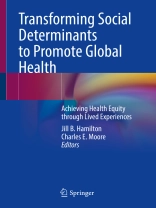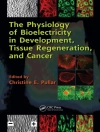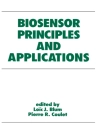This unique book addresses the need for the scholarly works that include the voices of clinicians, community stakeholders, and leaders of faith-based institutions in various phases of developing, implementing, and evaluating programs that address health inequities and health disparities among marginalized, middle and low resource communities. Another feature of this book is the contributions to the evidence on SDOH from not only academic researchers but clinicians, community partners, and leaders of faith-based institutions. The overall purpose of this book is really to highlight global community-based programs that have been implemented in marginalized, middle and low resource global communities. The communities represented are rural, urban-inner city, located in Southern, Northeastern, and Western U. S. as well as global communities from Malawi, Kenya, Tanzania, Ethiopia, Botswana, the Grenadines, Nigeria, and Peru. For ease of reading, the editors have further classified these SDOH conditions illustrated in chapters organized according to a 4 pillar SDOH framework of social, cultural, physical environment, social environment, and policy conditions.
This book contributes to a diverse perspective of the possibilities of incorporating SDOH into communities and faith-based institutions. The long-range objectives are to inform, inspire, and encourage the novice and senior faculty, clinician, community stakeholder, and faith-based institutional leader to develop, implement, and evaluate SDOH on health and health disparities among the communities they serve.
The intended audience of this book is faculty of nursing, public health, and medicine in academic and practice settings; professional leaders of nursing, public health, and medicine; community stakeholders, and leaders of faith-based institutions engaged in partnerships with health care providers. This text might also be useful to faculty of foreign studies, and behavioral sciences.
Зміст
1 Introduction with overview of significance of the community and faith-based institutions in transforming social determinants to promote health.- 2 The influence of racism on social determinants of health and health disparities.- 3 Looking Back on a 16-Year Academic / Community Partnership.- Part 1 Social Pillar.- 4 Access to quality education and technology: examining digital and health literacy.- 5 A community partnership to train nursing students as advocates for health and social justice among marginalized communities.- 6 The Blueprint to STEM Mentorship for inner city youth.- 7 SDOH influences on Chronic Stress: The physiological cost that increases risk of heart disease in Early Midlife African American Women.- 8 Disparities in Sociodemographic Factors of the Mother on Inequalities of Birth Outcome in Low and middle-income countries.- 9 Social determinants of maternal and newborn health: engaging communities in Botswana for better outcomes.- 10 Using Strategic Communications to Inspire a Shared Vision for Black Women’s Health.- Part 2 Cultural Pillar.- 11 Faith-based storytelling as SDOH to promote Health: A partnership with marginalized rural communities and faith-based institutions.- 12 Engaged Scholarship on the Family’s Role as a Proximal Health Resource for LGBTQ+ Adolescents.- 13 Structural factors affecting mother-baby pairs to access HIV services in Malawi: a case of Balaka district.- 14 Developing culturally salient assessment tools and interventions for underserved and high-risk populations in the United States and Africa.- 15 Developing Resources for Caregivers of Persons Living with Dementia in English Speaking Caribbean Countries.- 16 Expanding primary care access in multilingual populations using flipped visits and telehealth.- 17 Using human-centered design to co-create and test an integrated group postpartum and well-child care model in Malawi.- 18 Implementing Culture as Treatment to reduce stress and promote well-being in reservation based Native American Head Start Teachers.- 19 Socio-cultural barriers to contraceptives uptake and its consequences to unintended pregnancy in Ethiopia.- 20 Addressing Sexual and Gender Minorities Intersecting Structural Stigma: An Evidence-Based Holistic Care.- Part 3a Physical Environment– Physical– the part of the human environment that includes purely physical factors that contribute to health inequities and health disparities.- 21 Community Engaged Research with Agricultural Workers in Florida: Health and Climate Change.- 22 Mapping and Modeling the Social and Ecological Determinants of Vector Borne Disease Risk: A Case Study of Human African Trypanosomiasis.- 23 Communities in Action: Creating a Path to Environmental Health Equity in Southeast Indian Country.- 24 Community-Based Environmental Protection: Grassroots Approaches to Advance Environmental Justice and health Equity.- Part 3b Social Environment–might be further defined as the surroundings (social settings and institutions) that are influenced by humans that contribute to health inequities and health disparities.- 25 Culturally Relevant Community Engagement Strategies for Promoting Cervical Cancer Prevention among Black Women.- 26 Addressing SDOH in Communities: Perceptions from faith-based institutions.- 27 Expansion of family networks & social interactions to facilitate successful navigation of health care systems for the management of cognitive impairment.- 28 SDOH and school nurse-led interventions: Improving health and education outcomes among school aged children and adolescents.- 29 Assessing Global Community Oral Health Efforts to Promote Well-Being.- Part 4 Policy– Guidelines, principles, legislation and political activities that affect the living conditions conducive to the welfare of individuals, communities, societies quality of life.- 30 Using Policy to combat SDOH: Establishing coalitions in low resource communities.- 31 How community should inform policy and ultimately policy should improve community as relates to SDOH.- 32 A Community-First Technology Model to Help Ameliorate Social Determinants of Health.- 33 Re-envisioning the SDOH to re-imagine population health interventions?.- 34 Fostering strategic partnerships to advance access to healthcare among Georgia’s Latino Community.- 35 Social Determinants of Health: Strategies for Community Engagement and Practice.- 36 Decolonizing Nursing Education: Promoting Curricula for Community Engagement.- 37 Perceptions of Social Determinants of Health from Emerging Research Scholars.- 38 Concluding Chapter.
Про автора
Jill Hamilton, Ph D, MRPL, RN, FAAN is Professor, tenured, and Senior Faculty Fellow of SDOH & Health Disparities at the Nell Hodgson Woodruff School of Nursing and Affiliate Professor at Candler School of Theology at Emory University in Atlanta, Georgia. Dr. Hamilton earned her BSN, MSN, and Ph D in nursing from the University of North Carolina at Chapel Hill, a Masters in Religion and Public Life from the Candler School of Theology, a BS in Accounting from North Carolina Central University, and postdoctoral training in the nursing care of older adults at the Oregon Health & Science University. She previously held faculty positions at Johns Hopkins University and the University of North Carolina at Chapel Hill where she was tenured Associate Professor. Dr. Hamilton’s research interests include social determinants of health, health disparities, and the mental health promoting strategies used among older African American their families in response to life-threatening illness. She has developed culturally-relevant measures of social support and spirituality and has conducted research to examine ways in which these social determinants influence health outcomes. Dr. Hamilton is published on topics related to culture, social support, religiosity, spirituality, and quality of life among African Americans with life-threatening illness. She has done original research on the effects of Storytelling that incorporates religious songs and scripture on psychological distress among older and younger African Americans. The findings from this research are published in Cancer Nursing, the Journal of Religion and Health, the Gerontologist, and Nursing Research. She was a Georgia Cancer Coalition Distinguished Cancer Scholar from 2003-2007 and a member of the 2014 Class of the UNC Thorp Faculty Engaged Scholars. Dr. Hamilton is currently a Fellow in the American Academy of Nursing and a Faculty Scholar of the Center for Spirituality, Theology & Health at Duke University. She was the recipient of the 2019 Distinguished Alumni Award from the School of Nursing at the University of North Carolina and the 2011 Oncologyv Nursing Society (ONS) Publishing’s Division Award for Excellence in Writing Qualitative Research.
Charles E. Moore, MD, FAACE is Professor and Eminent Physician at Emory University and the Chief of Service in the Department of Otolaryngology – Head and Neck Surgery at Grady Health Care System. Dr. Moore received a Bachelor of Science from Union College and his medical degree from Harvard Medical School. He subsequently completed residency training in Otolaryngology- Head and Neck Surgery and fellowship training in Craniomaxillofacial – Cranial Base, Facial Plastic and Reconstructive Surgery at the University of Michigan. Dr. Moore is a Professor at Emory University and the Chief of Service in the Department of Otolaryngology – Head and Neck Surgery at Grady Health System. Dr. Moore has a longstanding andprofound commitment to the training and development of learners from all backgrounds. His research focus has been in the investigation of factors involved in healthcare disparity with a particular focus on head and neck cancer incidence in medically underserved communities. He is the President and Founder of Health Education, Assessment and Leadership (HEAL), Inc. This organization began in 2004 as a travelling educational resource out of the back of his personal vehicle. Through this organization, he strives to educate the community on health issues, assess its needs and in the process build leaders from within the community to address those issues. This travelling health resource has grown into the Healing Community Center (HCC), one of Atlanta’s newest Federally Qualified Healthcare Centers. The HCC is focused on those who fall in the gap between public funded health care and the privately insured. A primary emphasis is on preventative health, nutrition, and wellness. Further, the HCC incorporates all of the major Atlanta academic institutions and community organizations in an integrated fashion to provide service-learning experiences while also providing the necessary care to those in need. Dr. Moore is the recipient of numerous international and national awards that include the American Medical Association Foundation Pride in Profession, Excellence in Medicine Awards, the 2011 Gold Foundation Award for Humanism in Médicine, and the 2015 Jérôme C. Goldstein, MD Public Service Award. He is also the recipient of the Healthcare Georgia Foundation Award, the Zenith Award for Community Activism from the City of Atlanta and the Rollins School of Public Health, and the Martin Luther King Community Service Award Recipient for his work in impoverished communities. Dr. Moore is a Robert Wood Johnson Foundation Clinical Scholar and most recently received the Thomas Jefferson Award from Emory University for his distinguished leadership and service to the Emory and Atlantacommunity.












